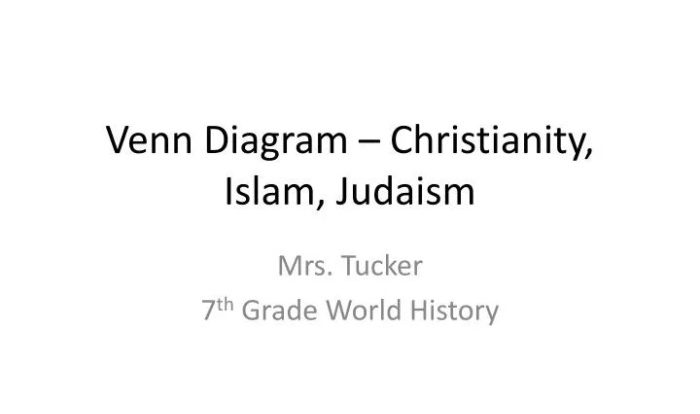The prophets of old fervently served as conduits of divine wisdom, leaving an indelible mark on the tapestry of human history. Their words, imbued with passion and conviction, continue to resonate across time, shaping religious beliefs, social norms, and literary traditions.
In this exploration, we delve into the historical context that shaped these enigmatic figures, examining their profound religious significance and the transformative social impact they wielded. Through a literary analysis of their writings, we uncover the literary devices and techniques that amplified their message.
By comparing and contrasting the teachings of different prophets, we gain a deeper understanding of their shared truths and unique perspectives.
Historical Context
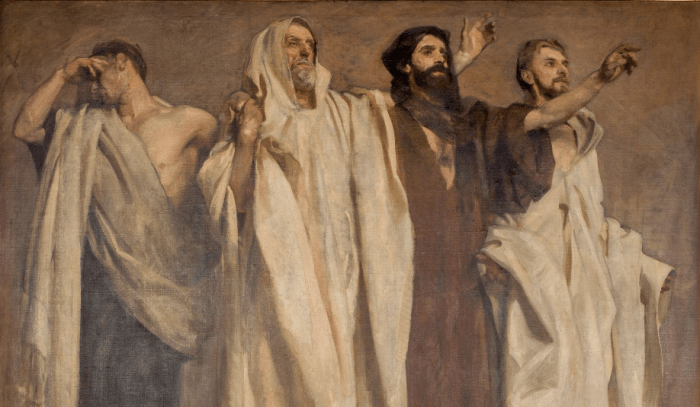
The prophets of old emerged during pivotal periods in the history of various civilizations. They played significant roles as spiritual leaders, social reformers, and messengers of divine revelation. Their teachings and actions shaped the religious, political, and cultural landscapes of their societies.
Examples of Prophets and Their Roles
*
-*Abraham (c. 2000 BCE)
Patriarch of the Israelites, he is revered as the father of monotheism. His teachings laid the foundation for Judaism, Christianity, and Islam.
-
-*Moses (c. 1300 BCE)
Led the Israelites out of slavery in Egypt, establishing the Ten Commandments and the covenant with God.
-*Elijah (c. 900 BCE)
A powerful prophet who challenged the worship of false gods and predicted the coming of the Messiah.
-*Isaiah (c. 700 BCE)
Known as the “prophet of hope,” he foretold the birth of a Messiah and the restoration of Israel.
-*Jeremiah (c. 600 BCE)
Just like the prophets of old fervently spread their messages, we should all strive to disseminate knowledge. Take this quiz on osmosis and diffusion to test your understanding of these fundamental biological processes. By sharing knowledge, we ensure that the wisdom of the prophets of old continues to guide us today.
Warned of the impending Babylonian invasion and the destruction of Jerusalem, advocating for repentance and faithfulness to God.
-*Daniel (c. 600 BCE)
A wise and influential advisor to the Babylonian kings, he interpreted dreams and prophesied about the future.
Religious Significance: The Prophets Of Old Fervently
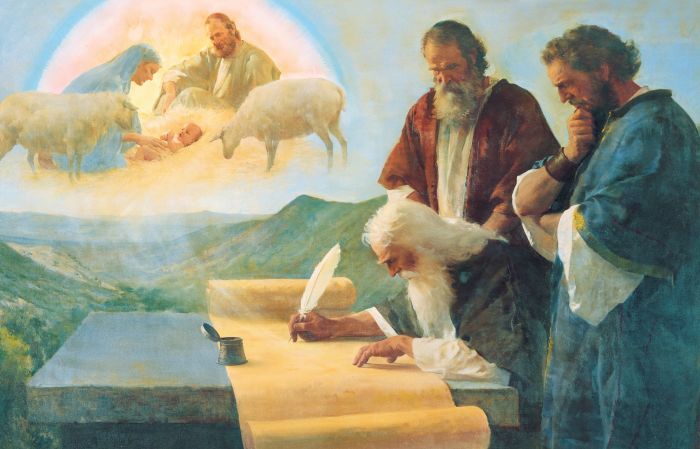
The prophets of old hold immense religious significance as divine messengers chosen by God to convey his teachings and guidance to humanity. Their profound teachings shaped religious beliefs and practices, influencing the spiritual and moral foundations of civilizations.
These prophets proclaimed the existence of a supreme being, emphasizing the importance of faith, obedience, and ethical conduct. They preached the virtues of justice, compassion, and humility, while condemning wrongdoing and injustice. Their teachings laid the groundwork for monotheistic religions, fostering a deep reverence for God and encouraging a life lived in accordance with divine principles.
Prophets and Their Teachings
Each prophet carried a unique message, contributing to the evolution of religious thought and practice. Notable prophets include:
- Abraham:Patriarch of the Abrahamic religions, known for his unwavering faith and covenant with God.
- Moses:Received the Ten Commandments from God, establishing a moral code for the Israelites.
- Elijah:A powerful prophet who challenged the worship of idols and promoted the return to God.
- Isaiah:Known for his prophecies of the coming Messiah and the establishment of a just and peaceful world.
- Jesus Christ:Central figure of Christianity, believed by many to be the son of God who came to redeem humanity from sin.
- Muhammad:Founder of Islam, receiving revelations from God through the angel Gabriel.
The teachings of these prophets have profoundly influenced the spiritual and ethical beliefs of billions of people worldwide, shaping the course of human history and continuing to inspire and guide religious practices today.
Social Impact
The prophets of old played a pivotal role in shaping the social landscape of their time. Their messages, infused with divine guidance, transcended the realm of religious doctrine and deeply influenced the norms, values, and legal frameworks of society.
Influence on Social Norms and Values
The teachings of the prophets promoted ethical behavior, compassion, and social justice. They condemned practices such as idolatry, oppression, and inequality, urging people to live in harmony with one another. Through their words, they established a moral compass that guided the conduct of individuals and communities, instilling a sense of responsibility and respect for human dignity.
Influence on Laws and Institutions
The prophetic messages also had a profound impact on the development of laws and institutions. The principles of justice, fairness, and equality advocated by the prophets found their way into legal codes and judicial systems. They influenced the establishment of laws that protected the rights of the vulnerable, such as the poor, orphans, and widows.
Additionally, they contributed to the formation of social institutions, such as schools and hospitals, that provided support and care for those in need.
Literary Analysis
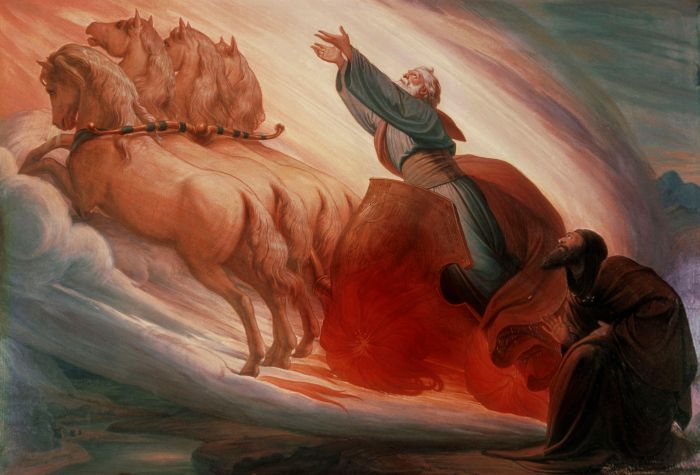
The writings of the prophets of old are literary masterpieces that showcase a rich tapestry of literary devices and techniques. These literary elements enhance the impact of the prophetic message, making it both aesthetically pleasing and deeply impactful.
Prophets employed various literary devices to convey their messages effectively. Similes, metaphors, and personification bring abstract concepts to life, making them relatable and memorable. Imagery paints vivid pictures in the reader’s mind, evoking emotions and creating a lasting impression.
Use of Symbolism
Symbolism is a powerful tool used by the prophets to convey profound truths in a concise and evocative manner. Objects, actions, and even numbers often carry symbolic meanings, adding depth and nuance to the prophetic message.
- The lion, for example, represents strength and courage, while the lamb symbolizes meekness and vulnerability.
- The number seven often signifies completeness or perfection, while the number twelve represents God’s covenant with his people.
Poetic Devices, The prophets of old fervently
Prophecy is often expressed in poetic form, employing rhythm, rhyme, and other poetic devices to enhance its impact. These elements create a sense of beauty and memorability, making the prophetic message more accessible and engaging.
- Parallelism, the repetition of similar grammatical structures, creates a sense of balance and emphasis.
- Chiasmus, the reversal of the order of words or phrases, highlights important concepts and creates a sense of symmetry.
Narrative Techniques
Prophets often used narrative techniques to illustrate their messages and make them more relatable. Parables, stories with a moral or spiritual lesson, provide a vivid and engaging way to convey complex truths.
Historical accounts, recording past events and their significance, offer lessons from the past and provide a context for understanding the present.
Comparative Study
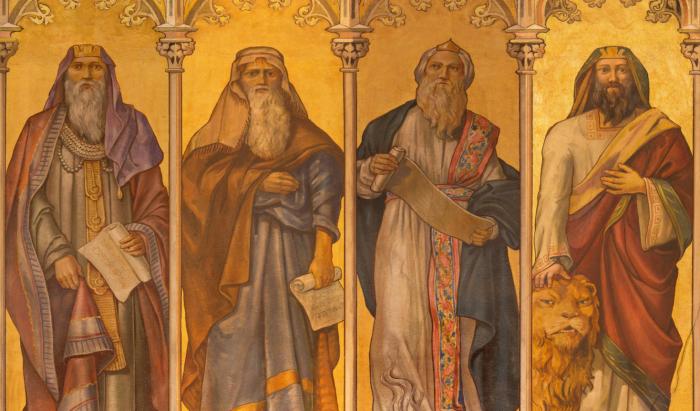
The teachings of different prophets of old often shared common themes and principles, yet also exhibited unique characteristics and emphases. This comparative study aims to highlight the similarities and differences in their messages and their impact on society.
Similarities in Teachings
- Monotheism:Most prophets preached the belief in one God, rejecting polytheism and idolatry.
- Moral Conduct:They emphasized the importance of ethical behavior, justice, compassion, and social responsibility.
- Repentance and Forgiveness:They taught that individuals could seek forgiveness for their sins through repentance and a change of heart.
- Divine Judgment:They warned of divine judgment for those who disobeyed God’s laws and oppressed the weak.
Differences in Teachings
- Historical Context:The prophets’ teachings were influenced by the specific historical and cultural contexts in which they lived.
- Emphases:While sharing common themes, different prophets placed varying emphases on certain aspects of their message. For example, some focused more on social justice, while others emphasized personal piety.
- Style and Language:The literary style and language used by the prophets varied, reflecting their individual personalities and the audiences they addressed.
Impact on Society
- Moral and Ethical Guidance:The prophets’ teachings provided a moral and ethical framework for individuals and societies, shaping their behavior and values.
- Social Change:Their messages often challenged societal norms and inspired movements for social reform, advocating for justice and equality.
- Religious Development:The prophets played a pivotal role in the development of religious traditions, establishing doctrines and practices that continue to shape religious beliefs and practices today.
Contemporary Relevance

The teachings of the prophets of old continue to resonate with people today, offering guidance and inspiration in the face of modern challenges. Their messages of justice, compassion, and hope remain relevant in a world often characterized by inequality, conflict, and despair.
Social Justice
The prophets’ unwavering commitment to social justice serves as a powerful reminder of the importance of fighting for the rights of the oppressed. Their teachings encourage us to challenge unjust systems, advocate for the marginalized, and work towards creating a more equitable society.
Top FAQs
Who were some of the most influential prophets of old?
Among the most influential prophets of old were Moses, Elijah, Isaiah, Jeremiah, and Muhammad, each leaving a profound impact on their respective societies and religious traditions.
What were the primary teachings of the prophets of old?
The prophets of old preached a message of monotheism, emphasizing the worship of a single, all-powerful God. They also advocated for social justice, compassion, and ethical behavior.
How did the prophets of old influence social norms and values?
Through their teachings and actions, the prophets of old challenged prevailing social norms and values, promoting equality, fairness, and the protection of the marginalized.
